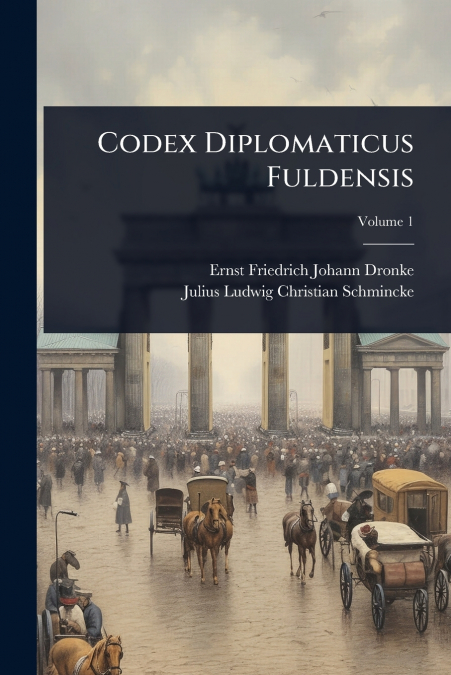
Ernst Friedrich Johann Dronke / Julius Ludwig Christian Schmincke
Codex Diplomaticus Fuldensis, Volume 1, is a meticulously compiled collection of historical documents and charters pertaining to Fulda Abbey, one of the most significant Benedictine abbeys in medieval Germany. Edited by Ernst Friedrich Johann Dronke and Julius Ludwig Christian Schmincke, this volume offers invaluable insights into the political, economic, and social landscape of the region from the 8th to the 12th centuries.The collection includes imperial diplomas, papal bulls, property records, and other legal documents that shed light on the abbey’s extensive land holdings, privileges, and interactions with emperors, popes, and local nobles. Researchers and historians will find this work essential for understanding medieval German history, ecclesiastical administration, and the development of legal practices during the period. The texts, primarily in Latin, provide a rich resource for those studying diplomatics, paleography, and medieval law.This work has been selected by scholars as being culturally important, and is part of the knowledge base of civilization as we know it. This work was reproduced from the original artifact, and remains as true to the original work as possible. Therefore, you will see the original copyright references, library stamps (as most of these works have been housed in our most important libraries around the world), and other notations in the work.This work is in the public domain in the United States of America, and possibly other nations. Within the United States, you may freely copy and distribute this work, as no entity (individual or corporate) has a copyright on the body of the work.As a reproduction of a historical artifact, this work may contain missing or blurred pages, poor pictures, errant marks, etc. Scholars believe, and we concur, that this work is important enough to be preserved, reproduced, and made generally available to the public. We appreciate your support of the preservation process, and thank you for being an important part of keeping this knowledge alive and relevant.